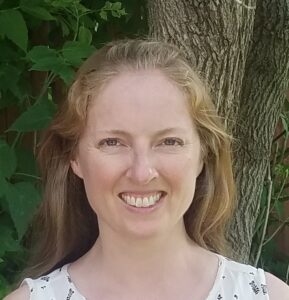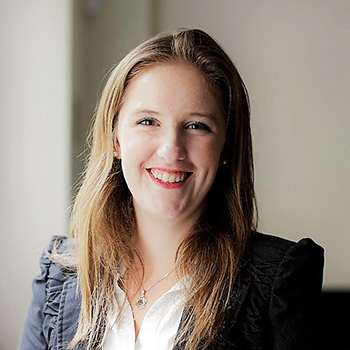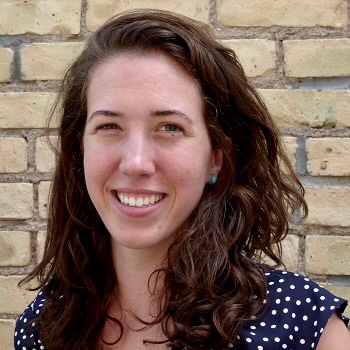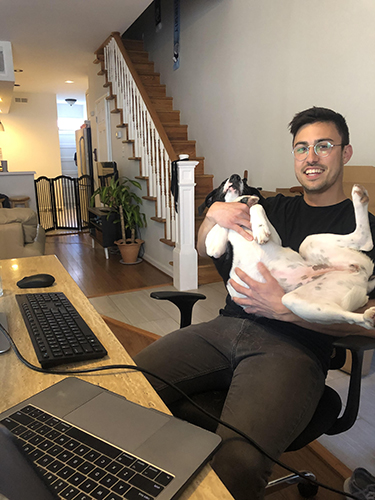Meet the Knauss fellows: Theresa Vander Woude
By Eva Ryan, University of Wisconsin-Madison
The Sea Grant Knauss Fellowship is a nationally competitive opportunity that sends graduate students interested in ocean, coastal and Great Lakes resources and policy to the historical hub that is Washington, D.C. There, these students are paired with , o r a mentor in a federal agency in order to learn more about the policies surrounding the nation’s natural resources.
For the last but certainly not least of the Knauss fellow spotlight articles, I interviewed Theresa Vander Woude. Vander Woude received two Master of Science degrees in Life Sciences Communication and Environment and Resources at the University of Wisconsin-Madison, where she studied the human dimensions of land and water resource issues.
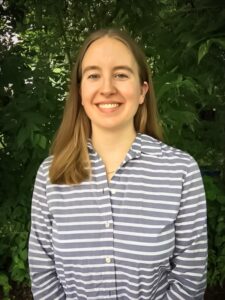
Theresa Vander Woude is one of four 2022 Knauss Fellows from Wisconsin. She is exploring policy in her posting to the Office of Water in the U.S. Environmental Protection Agency. Contributed photo.
“Before I returned to school, I was an environmental communications professional specifically working on lake nutrient pollution issues in the Madison area,” Vander Woude said. She noted that during her time as an environmental communications professional, her bosses urged her to support her decisions with evidence. This led Vander Woude to an increased intake of research, further learning about what makes environmental efforts successful. Eager for more information, Vander Woude found herself back at UW-Madison.
“I had read all this research and I wanted to know how I could figure out answers to the questions that I wanted to know,” she said, “What makes me so passionate about the human dimensions is that they’re so easy to leave out of environmental decisions because they can be hard to study.”
For example, Vander Woude was able to help out with a project with the Wisconsin Department of Natural Resources. This project focused on how lakefront property owners think about the risks of aquatic invasive species as well as the risks of potential treatment approaches, informing communication with stakeholders when new invasive species are discovered. Vander Woude has also collaborated with Wisconsin Sea Grant’s aquatic invasive species outreach specialist, Tim Campbell.
After gaining experience in working on water issues locally and regionally, Vander Woude was intrigued to see and understand how federal policy came into play for larger water issues with local impact. This led her to the Knauss Fellowship. After mainly focusing her studies on the Midwest, Vander Woude was pleased to expand her knowledge of the U.S. through a placement in the Office of Water at the Environmental Protection Agency’s headquarters in Washington, D.C. “Now I’m able to fit the puzzle pieces together on a broader scale by asking, how do things work elsewhere?” said Vander Woude.
As for her time participating in the Knauss Fellowship, she noted there is a big difference between simply learning about policy versus actually seeing it in action. Vander Woude was able to see several different examples of policy in motion and defined this as one of her biggest takeaways from the fellowship so far. She also touched on the uniqueness of the Knauss Fellowship in that she is able to focus on her own professional development while gaining postgraduate experience, rather than diving straight into the workforce.
While Vander Woude prefers to take life one step at a time and unfold what the future has to offer as she goes, she said, “I do hope to become more comfortable analyzing and commenting on the policy, contributing to discussions, and helping make decisions.”
Vander Woude, among the other fellows, began the Knauss Fellowship on Feb. 1.
The post Meet the Knauss fellows: Theresa Vander Woude first appeared on Wisconsin Sea Grant.News Releases | Wisconsin Sea Grant
News Releases | Wisconsin Sea Grant
https://www.seagrant.wisc.edu/news/meet-the-knauss-fellows-theresa-vander-woude/?utm_source=rss&utm_medium=rss&utm_campaign=meet-the-knauss-fellows-theresa-vander-woude

